News
REVEALED! One In Three Nigerian Children Out Of School, Says UNICEF
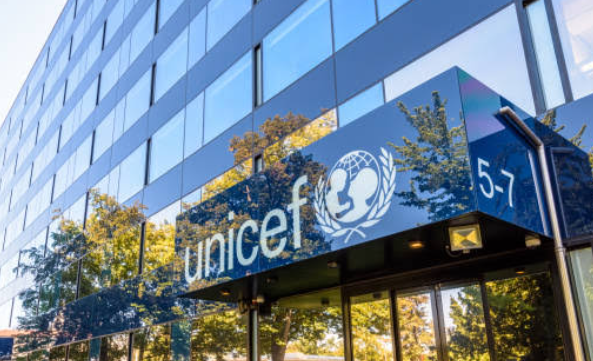
The United Nations International Children’s Emergency Fund (UNICEF) has distributed 2,760 solar-powered radio sets to the Katsina State Universal Basic Education Board (SUBEB) but rued the growing out-of-school children population in Nigeria.
UNICEF handed over the radio sets to Katsina SUBEB for students in the security frontline communities to learn lessons.
In his address during a Media Dialogue on Retention, Transition, and Completion (RTC) and Re-entry Guidelines for Adolescent Girls in the State, the Chief of Field, UNICEF Field Office Kano, Rahama Farah, revealed that Nigeria’s education system is faced with the twin crises of a large and growing out-of-school population and severe learning poverty.
According to him, one in three children is out of school in Nigeria, representing 10.2 million at the primary school level and 8.1 million children at the junior secondary level.
“Nigeria’s education system is faced with the twin crises of a large and growing out-of-school population and severe learning poverty,” he said.
“One in three children are out of school (OOS) (10.2 million at primary school level and 8.1 million children at junior secondary level), and according to the Multiple Indicator Cluster Survey (MICS) 2021, three in four children aged 7-14 years cannot read with understanding or solve a simple mathematics problem”.
Farah said that UNICEF, and partners such as the World Bank, the European Union, and the FCDO have collaborated with AGILE and BESDA projects to support Katsina State and governments in the North-West to reprioritise investments in education and to mitigate against the declining state of education in terms of access, participation and quality of learning outcomes.
“We are all here because our education system is in a crisis; a crisis characterised by a high number of out-of-school children, low attendance and participation rates, low transition rates, low completion rates, poor learning outcomes, and low skills acquisition for children at all levels.
These issues characterising the education system are at the backdrop of high insecurity in the North-West and, Katsina and Zamfara states; low financing to education; poorly resourced schools; low teacher competency levels and high pupil-teacher ratio, among others.
“Together, these factors lead to low overall education attainment, hamper social and economic opportunities for young people, and perpetuate intergenerational cycles of poverty and inequality.
“Stalled progress on Sustainable Development Goal (SDG) 4 will affect regional and global development as Nigeria accounts for the largest global (15 per cent) and regional (33 per cent) share of OOS children.
“Education indicators are the lowest for adolescent girls in the North-east and North-West Nigeria, especially children from poor families and those in rural and security-compromised areas.
In 2021 alone, a least 25 schools were attacked, directly impacting 1,446 learners and 24 personnel. Seventy-six percent of the attacks took place in the Northwest.
“Kaduna was the most frequently attacked (8 out of 25 attacks). Katsina (344 learners) followed by Zamfara states (327 learners) reported the highest number of abductees taken in a single abduction.
“As a precautionary measure, in the 2020/21 academic year, over 11,000 schools were closed for four months, significantly disrupting the education of 1.3 million children.
“The OOS phenomenon is fueled by the growing child population placing significant pressure on the delivery of social services. Yet education financing has not kept pace with a burgeoning demand for education and the high fertility rate.
“Nigeria spends 1.2 per cent of GDP on education, far lower than other African countries and notably lower than the international benchmark of four to six per cent.
“Insufficient domestic financing results in a shortfall of 378,000 classrooms and approximately 278,000 teachers.
“This leads to high student-teacher ratios (e.g., 55:1 at the primary level) and additional pressure on teachers whose capacity is already limited, as 50 per cent of basic education teachers lack the Nigerian Certificate in Education (NCE) or the minimum teaching qualification. What is more, in each workday, 20 per cent of primary school teachers are absent.
“Inadequate and unsafe school infrastructure, poor teaching quality, and low learning outcomes are exacerbated by insecurity and school attacks and compounded by staggering poverty and negative social norms on education, particularly for girls.”
He added, “With regards to Katsina state, the number of Out of School Children has been high (536,122 children) but is progressively reducing over the last eight years from 36.9% in 2016 to 35.5% in 2021 (MICS) and a projected 30% by 2024 if commitments to education and investments are sustained.
“Primary school completion rate in Katsina state averages 62.5% compared to the national average of 73.1% and 56.1% for the northwest respectively. Senior Secondary School Completion rates are low, with only 32 percent of children enrolled completing their education (MICS 2021).
“Although it is important to note that Katsina state has a positive gender parity index of 1 at the primary level, meaning there are nearly equal numbers of girls and boys in primary school, the transition rates can be more encouraging than they are no.
“Transition rate to secondary school in Katsina state stands at 69.5 % lower than the national average of 84% and the northwest average of 70% (MICS 2021) with fewer girls transitioning to secondary school than boys.
“Only 9.2% and 13.3 % of children in Grade 3 were able to demonstrate reading and numeracy skills respectively in Katsina state compared to the national average of 26.8 and 25.3 in reading and numeracy skills.
“I would also like to highlight a few initiatives that the Katsina state government in collaboration with UNICEF and other development partners have put in place to respond to the declining status of education in the state, with some notable positive outcomes.
“Increased financing to education: The Katsina state government has this year increased its state budgetary allocation from 28% to 34%. UNICEF urges that this allocation be matched by release and spending.
“Increase in the number of newly recruited teachers. The Katsina state government has recruited an additional 7,325 teachers in the 2023/24 financial year to mitigate the critical shortage of teachers in the state.
“Provided over 100,000 social cash transfers to keep children from the poorest families in school.
“Enrolled over 123,575 learners, boys, and girls, on the Nigeria Learning Passport platform in the last two years, providing access to alternative learning to many children. This represents 11 per cent of total NLP enrolment in Nigeria.
“Created 500 community learning hubs in 10 frontline LGAs, engaged radio stations to broadcast radio learning programmes, and provided solar radios and memory sticks in support of alternative learning solutions.
“Launched a strategy that provides equal opportunities to all children to enroll, participate, transition, and complete school.
“Created an enabling environment for a second chance education for girls through Re-Entry guidelines that provide opportunities for pregnant and married girls to re-enroll and complete their education.
“UNICEF would like to engage the media as equal partners in education development and ensure that every parent, community leader, traditional leader, and religious leader is aware of the government of Katsina and its partners’ priorities, plans, and urgency to ensure every child has an equal opportunity to enroll, participate, transition, and complete their education in a safe and conducive environment,” he noted.
On his part, the Chairman of the School-Based Management Committee, Chiroma Ingawa, expressed gratitude to UNICEF for their support and interventions over the last three years, stating that the organisation helped education in the state across both the primary and secondary schools.
He therefore assured readiness to support and implement any programme brought by UNICEF to Katsina State.
News
Nigerian Journalist Breaks 72-Hour Interview Marathon Record in Abuja
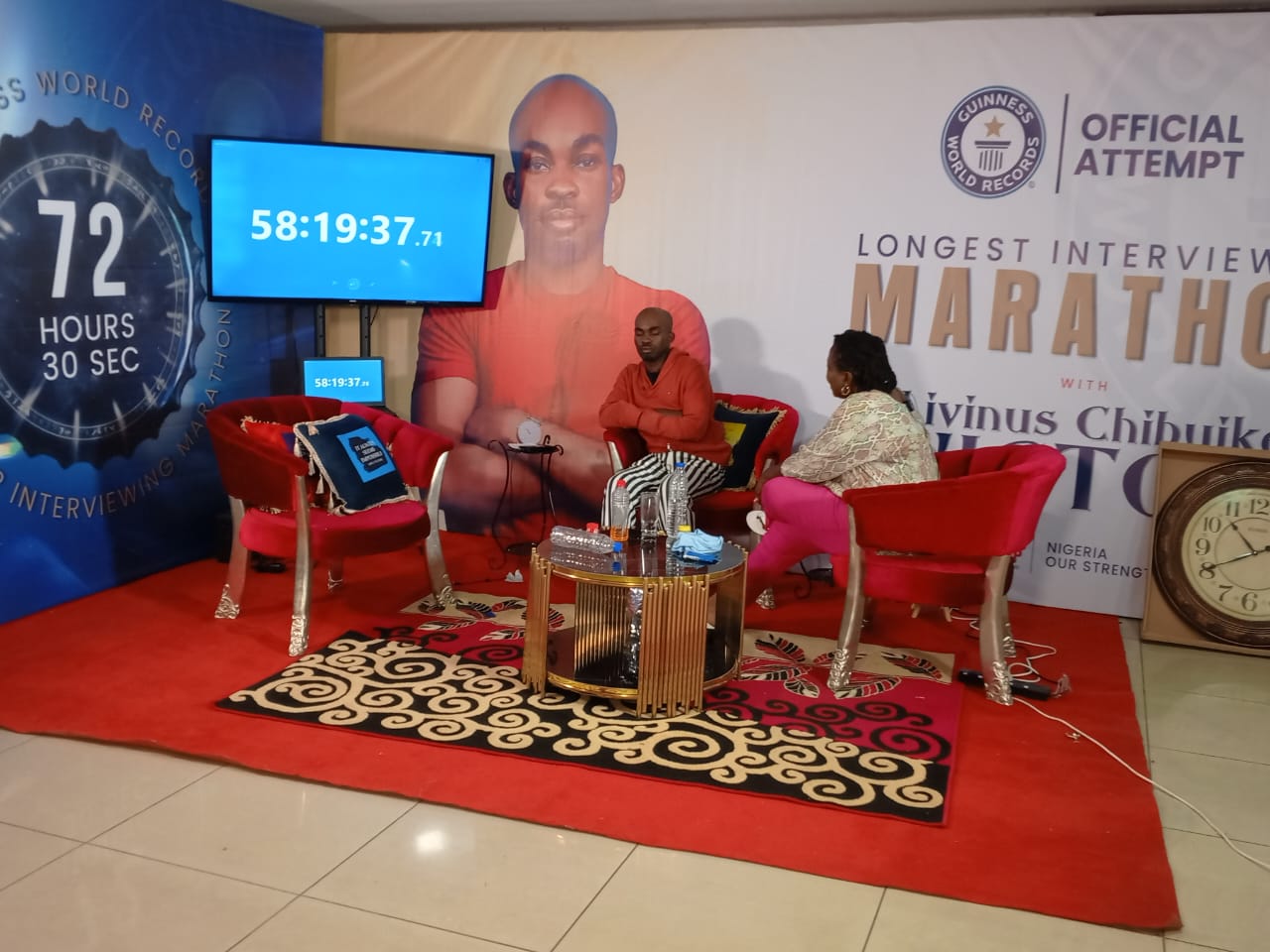
By Gloria Ikibah
A Nigerian journalist, Livinus Chibuike Victor, has set a new world record after hosting interviews non-stop for 72 hours and 30 minutes in Abuja.
The record-breaking event which took place at Harrow Park Golf Club, started on Friday, April 17 and ended on Sunday, April 20, 2025. Livinus, who has worked in media for years, said the aim was to promote press freedom under the theme “Nigeria, Our Strength.”
Livinus is known in media circles for his bold reporting and commitment to stories that matter. He is passionate about mentoring younger journalists and often speaks out about the importance of a free press.
This new record beats the previous one of 55 hours and 24 seconds, set by fellow Nigerian Clara Chizoba Kronborg in Spain in March 2024.
According to those present at the event, Livinus remained focused and energetic throughout the marathon, drawing support from colleagues, fans, and well-wishers.

In the centre of Abuja, journalist Livinus Chibuike Victor spent three straight days interviewing Nigerians from all walks of life — from community leaders to regular citizens all sharing their stories. The goal was simple: use the platform to highlight the importance of press freedom.
“For democracy to work, people need access to real information. That only happens when journalists are free to do their jobs,” Livinus said during one of the sessions.
Preparing for the marathon wasn’t easy. Livinus trained for months — eating healthy, building stamina, and learning to stay mentally focused for long hours. A team of medics was on standby throughout the event, checking his vitals, managing his breaks, and making sure he stayed strong.
Support came from all corners. The NUJ FCT Council was there too, cheering him on. Chairperson Grace Ike described the effort as “bold and inspiring,” saying it reminded people of the important role journalism plays in building society.
By the time he wrapped up after 72 hours and 30 minutes, Livinus had broken the existing world record — but that wasn’t all. He also got people talking about the risks journalists face and why their work matters.
“This isn’t just about a record,” he said. “It’s about reminding people that our voices matter, and we need to protect that freedom.”
Now that it’s over, Livinus said he is thinking about his next big move, maybe even an interview session in Antarctica. But for now, he is just taking it all in and thanking everyone who stood by him.
News
SAD! Popular Gospel singer, Big Bolaji is dead

Bolaji Adedotun Olanrewaju, popularly known as Big Bolaji, a Nigerian gospel singer, is died.
His family confirmed the unfortunate news in an official statement on Saturday.
Reports indicated that Big Bolaji slumped and died at the age of 50 at an event last night during a concert.
“It is with profound sadness that we announce the passing of Bolaji Olarewaju, affectionately known as ‘Big B,’ a cherished father, husband, brother, and an esteemed figure in both the church community, an ordained Pastor in the RCCG and a giant in the music industry and our community. Bolaji left us on Easter Saturday, 19th April 2025, after a brief illness,” the statement read.
“His departure leaves a void in our hearts that can not be filled.
“Bolaji’s life was a testament to his passion for music, his unwavering faith, and his dedication to uplifting those around him. His legacy is not only in the melodies he created but in the lives he touched and the unquantifiable joy he spread.”
They added, “We take solace in knowing that his absence with us is his presence with the Lord, and the indelible mark he left on all who had the privilege of knowing him will not be erased.
“As we navigate through this time of loss, we kindly request privacy to mourn as a family. We are deeply grateful for the outpouring of love and support we have received and ask that you continue to keep us in your prayers.”
The family also noted that funeral arrangements would be communicated at a later date.
“Details regarding the obsequies will be shared in due course as we come together to celebrate Bolaji’s remarkable life and legacy.
“Thank you for respecting our wishes during this incredibly difficult time.
“With gratitude,
“The Family of Bolaji Olarewaju,” the statement added.
News
Speaker Abbas Salutes Christians at Easter, Urges All To Emulate Selflessness of Jesus

-
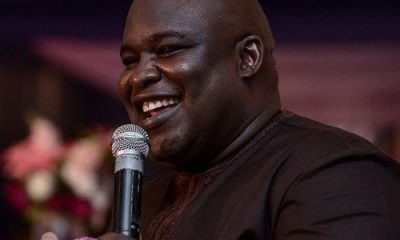
 News7 hours ago
News7 hours agoSAD! Popular Gospel singer, Big Bolaji is dead
-
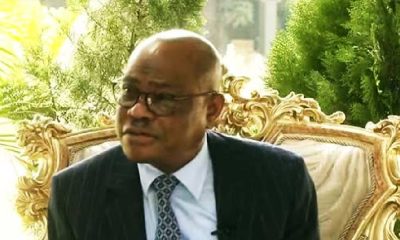
 News19 hours ago
News19 hours agoN300m gift: NBA under heavy hammer as FCT minister, Wike alleges body is compromised
-

 News16 hours ago
News16 hours agoCriminals in military uniform kill 12 at cockfight
-

 News15 hours ago
News15 hours agoINSECURITY: Armed herders attack reportedy leaves family of eight dead, nine others
-
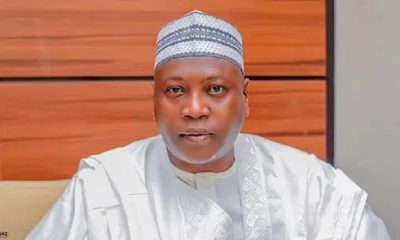
 News19 hours ago
News19 hours agoStop hunting in southern states, lawmaker begs Northerners
-

 News19 hours ago
News19 hours agoUK launches updated English tests for visa, citizenship applicants
-

 News10 hours ago
News10 hours agoEASTER:Let’s use this period to pray for compassionate leaders -Obi
-

 News15 hours ago
News15 hours agoCBEX: Ponzi scheme promoters face 10 years jail term, N20m fine





